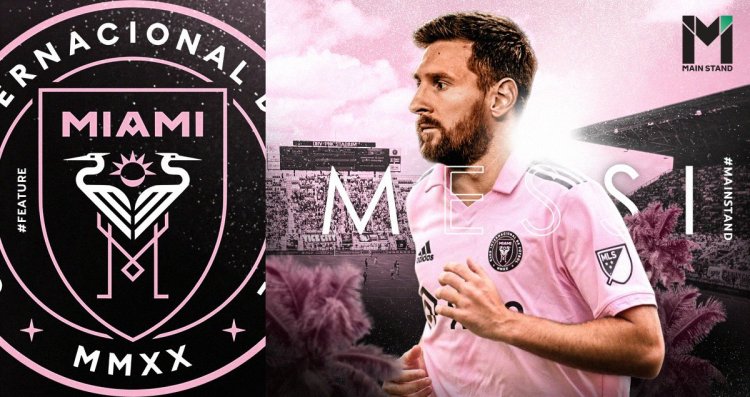Adidas and Apple behind Messi shunning Saudi move not football reasons

In a week dominated by stories about the Saudi influence over sport—with Karim Benzema joining Al-Ittihad and the Saudi Public Investment Fund buying four Saudi clubs while reaching an agreement with the PGA and the DP World Tour to end golf’s civil war—it came as something of a surprise to find that Lionel Messi will not be joining the exodus of ageing stars to the Saudi league.
Messi confirmed Wednesday that he will join Inter Miami. It’s a move that seems motivated by three main factors: the desire to establish a legacy in the U.S., particularly in the run-up to the 2026 World Cup there; the fact that his family would rather live in Florida than Riyadh or Jeddah; and the possibility of lucrative deals with Apple and Adidas, major backers of MLS, which would presumably make up to an extent the enormous sums Messi could make in Saudi Arabia (he had reportedly been offered $400 million per year). And, of course, joining Inter Miami doesn’t preclude the possibility of a move to Saudi Arabia in a year or two.
Messi achieved his last realistic sporting goal in December by winning the World Cup. There is nothing much left for him to do now. All he is doing is burnishing his legacy and perhaps topping up his already mighty cash reserves. Although his time at Paris Saint-Germain brought two league titles, he was regularly criticized by fans, and those two seasons very much seemed like a coda after the glory-infused 21 years at Barcelona in which he won 10 league titles and four Champions Leagues.
Adding further silverware, whether in the U.S. or Saudi Arabia, is manifestly not a priority. His legacy will not be burnished by an MLS Cup nor tarnished by failure. But he can perhaps carve out future marketing opportunities in the U.S. Talk of him doing what Pelé did for U.S. soccer in the 1970s is fanciful, if only because the base is so much higher. However, he could perhaps make soccer definitively the fourth-most popular sport in the country.
As to what Messi would bring to Inter Miami, that is also less on the pitch than off it. Messi is probably one of the three greatest players ever to have played the game, and, just as Newell’s Old Boys and Sevilla are remembered among the list of Diego Maradona’s clubs, so Inter Miami would be remembered among Messi’s. He would bring glamour and attention and offer the chance to fans to see him play live—an experience still so noteworthy that a number of journalists maintain lists of each time they have watched him play.
But he is not what he once was. Messi is 35. He is winding down. His involvement, minimalist for a dozen years or so, has become even less than that now. He inspired Argentina at the World Cup because the whole team played for him and because international football is less systematized than the game at club level. For Barça and PSG, Messi was fine so long as his side dominated possession, but in big European ties his lack of defensive work, really from 2015 onward, meant Barça could be overwhelmed through midfield. Whether MLS sides can take similar advantage will be an indication of the general level of the competition, whether it remains a celebrity vehicle or is significantly more serious than that.
There is also an inevitable sense of opportunity missed with Inter Miami’s dismissal of Phil Neville last week. Who did not want to see the Pooterish figure of Neville, whose curious, passive-aggressive business-school/self-help banalities made him a cult figure during his time as England women’s manager, earnestly trying to pass on advice to one of the three greatest players who ever lived? Tata Martino is being touted as the new manager, which makes a certain sense. He, like Messi, comes from Rosario, Argentina, and Martino managed him both with Argentina and Barcelona, albeit not with any great success.




















